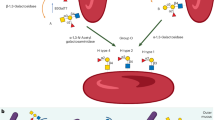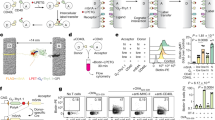Abstract
DURING in vitro studies of drug action on purified red cells and lymphocytes, it became necessary to defibrinate normal human blood in a reproducible manner with minimal trauma. Two methods are commonly used for defibrination. The first involves mixing blood with glass beads in an airtight container, a procedure which may cause cell damage. When extended for 60 min at room temperature it caused haemolysis. The second method involves swirling blood in a conical flask containing a glass rod covered at its lower end with glass spikes. The disadvantages are that loss of carbon dioxide from the blood gives elevated pH values and frothing occurs. Again haemolysis was observed when defibrination was prolonged for 60 min at room temperature.
This is a preview of subscription content, access via your institution
Access options
Subscribe to this journal
Receive 51 print issues and online access
$199.00 per year
only $3.90 per issue
Buy this article
- Purchase on Springer Link
- Instant access to full article PDF
Prices may be subject to local taxes which are calculated during checkout
Similar content being viewed by others
References
Thomson, A. E. R., Bull, J. M., and Robinson, M. A., Brit. J. Haematol., 12, 433 (1966).
Author information
Authors and Affiliations
Rights and permissions
About this article
Cite this article
WILSON, J., GRIMES, A. Defibrination of Normal Human Blood for in vitro Cell Studies. Nature 218, 178–180 (1968). https://doi.org/10.1038/218178a0
Received:
Issue Date:
DOI: https://doi.org/10.1038/218178a0
This article is cited by
-
Relation between Blood Coagulation and Chemotaxis of Leucocytes
Nature New Biology (1971)
Comments
By submitting a comment you agree to abide by our Terms and Community Guidelines. If you find something abusive or that does not comply with our terms or guidelines please flag it as inappropriate.



